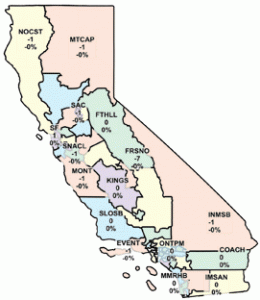![]() A hat tip to Rob Richards at the Legal Informatics Blog for alerting us that the National Conference of Commissioners on Uniform Laws (NCCUSL) will meet on July 7th to consider adopting The Uniform Electronic Materials Act (the Act). As Rob notes in his post, the Act aims to “establish uniform legal standards for the authentication and preservation of U.S. state legal information in digital formats.” The Act also touches on issues around accessibility, noting its importance in helping create informed citizens.
A hat tip to Rob Richards at the Legal Informatics Blog for alerting us that the National Conference of Commissioners on Uniform Laws (NCCUSL) will meet on July 7th to consider adopting The Uniform Electronic Materials Act (the Act). As Rob notes in his post, the Act aims to “establish uniform legal standards for the authentication and preservation of U.S. state legal information in digital formats.” The Act also touches on issues around accessibility, noting its importance in helping create informed citizens.
Articles Posted in June, 2011
Last week, the Mexican Senate passed a resolution asking the President not to sign ACTA, the Anti-Counterfeiting Trade Agreement. With this resolution, the Mexican Senate is the first in the world to reject this treaty that has been pushed in several countries under different names, such as “Ley Sinde” in Spain and “Ley Lleras” in Colombia and many others. This proposal was approved unanimously by all members of the Senate’s Defense, National Security and Education commissions.
After six months of consultations with the community, industry and authors, the Senate decided to reject ACTA because the treaty could criminalize the transmission of documents, books or songs over the Internet. The Senate committees were concerned that such treatment could impede society’s access to information and culture.
 We told you about our nice free case law summaries. Then we blogged that we were adding more. Well, today, my friends, we are done. We have all fifty states!
We told you about our nice free case law summaries. Then we blogged that we were adding more. Well, today, my friends, we are done. We have all fifty states!
Now you can sign up and receive free summaries of court opinions for all state supreme courts, the US Supreme Court and all Federal appellate courts. Just go to http://daily.justia.com to register and sign up!
We also have over 60 practice area digests to choose from.
 Tomorrow is national Take Your Dog to Work Day®, a phrase trademarked by a pet sitters’ industry group.
Tomorrow is national Take Your Dog to Work Day®, a phrase trademarked by a pet sitters’ industry group.
At Justia, however, every day is take your dog to work day, where the in-house dogs keep hounding us for more free law.
They:
- Help us chase laws
- Sit for Supreme Court opinions, and
- Rollover for recalls,
- Seek TROs for tummy rubs, and
- Sleep sua sponte.
 Today, the Food and Drug Administration published its final rule on Required Warnings for Cigarette Packages and Advertisements, 76 Fed. Reg. 36628 (June 22, 2011). In general, the FDA opted for a shock-and-awe approach by requiring graphic images with accompanying warning statements on cigarette packaging.
Today, the Food and Drug Administration published its final rule on Required Warnings for Cigarette Packages and Advertisements, 76 Fed. Reg. 36628 (June 22, 2011). In general, the FDA opted for a shock-and-awe approach by requiring graphic images with accompanying warning statements on cigarette packaging.
Currently, cigarette packages must bear the following required warnings:
SURGEON GENERAL’S WARNING: Smoking Causes Lung Cancer, Heart Disease, Emphysema, And May Complicate Pregnancy.
SURGEON GENERAL’S WARNING: Quitting Smoking Now Greatly Reduces Serious Risks to Your Health.
SURGEON GENERAL’S WARNING: Smoking By Pregnant Women May Result in Fetal Injury, Premature Birth, And Low Birth Weight.
SURGEON GENERAL’S WARNING: Cigarette Smoke Contains Carbon Monoxide.
 In Mexico, a common line of thought is that projects funded with government money must be a public good. However, Mexican copyright laws challenged this perception after the government-funded Enciclomedia project failed due to fuzzy contracts, political conflicts and a lack of infrastructure.
In Mexico, a common line of thought is that projects funded with government money must be a public good. However, Mexican copyright laws challenged this perception after the government-funded Enciclomedia project failed due to fuzzy contracts, political conflicts and a lack of infrastructure.
Initially, the goal of Enciclomedia was to incorporate content from several different government educational programs and Microsoft Encarta into an educational multimedia resource for Mexican public schools. After the project closed, an ex-developer on the Enciclomedia team created Encicloabierta, which published the Enciclomedia content online.
 Note: I wrote this post to help explain the concept of metadata and how it can be used to improve free primary law sources. This post focuses on statutes, next week I will discuss applying these principles to opinions.
Note: I wrote this post to help explain the concept of metadata and how it can be used to improve free primary law sources. This post focuses on statutes, next week I will discuss applying these principles to opinions.
The simplest way to explain metadata is “data about the data.” Metadata can describe, among other things, the purpose, date of creation, location, means of creation, and standards used in the data. For example, when you take a picture with a digital camera, the image also contains information about the camera used to take the picture, the time and date, image resolution, etc. When you upload that picture to, say, Picasa, you’ll see this information. Picasa knows what type of camera you used because that data is embedded in the image itself.
The Dewey Decimal System is an example of metadata. Along the spine of a book is a number. That number is associated with a classification system – placing it within a catalog of records that contains “data about the data” (subject, author, title, number of pages, publisher, ISBN number, etc.) which in turn helps patrons find what they’re looking for.
 In an enlightening decision, a federal judge ruled this week that Las Vegas-based copyright litigation enterprise Righthaven had no legal basis to sue one defendant, Democratic Underground, because it didn’t even own the copyright it was suing over.
In an enlightening decision, a federal judge ruled this week that Las Vegas-based copyright litigation enterprise Righthaven had no legal basis to sue one defendant, Democratic Underground, because it didn’t even own the copyright it was suing over.
Chief U.S. District Court Judge Roger Hunt was particularly peeved to learn that Righthaven was trying to engage in legal slight-of-hand by purportedly having publisher Stephens Media, LLC assign it any right to sue for copyright infringement. This was impossible, the court concluded, because copyright law forbids assigning the right to sue over alleged infringement; “only the owner of an exclusive right under a copyright may bring suit.”
 On Monday, the U.S. Bankruptcy Court for the Central District of California, in Los Angeles, made an unusual ruling for a bankruptcy court: it declared Section 3 of the Defense of Marriage Act (DOMA) unconstitutional. In that case, a legally married same-sex couple in California tried to file a joint petition for Chapter 13 bankruptcy. The U.S. trustee filed a motion to dismiss on the grounds that the two men were ineligible to file a joint petition because the federal government did not recognize them as married, and the bankruptcy code allows only married couples to file joint petitions. The court denied the motion to dismiss, concluding that no “valid governmental interest is advanced by DOMA as applied to the Debtors.”
On Monday, the U.S. Bankruptcy Court for the Central District of California, in Los Angeles, made an unusual ruling for a bankruptcy court: it declared Section 3 of the Defense of Marriage Act (DOMA) unconstitutional. In that case, a legally married same-sex couple in California tried to file a joint petition for Chapter 13 bankruptcy. The U.S. trustee filed a motion to dismiss on the grounds that the two men were ineligible to file a joint petition because the federal government did not recognize them as married, and the bankruptcy code allows only married couples to file joint petitions. The court denied the motion to dismiss, concluding that no “valid governmental interest is advanced by DOMA as applied to the Debtors.”
 Ballot initiatives in California run the gamut and ask the electorate to cast their vote, yea or nay, on a wide range of issues. Recently, there has been a lot of press about one specific initiative we went to the polls to vote on (and passed) in 2008 – Proposition 11 — the Voters FIRST Act (“the Act’). The Act authorized the creation of a fourteen-member Citizens Redistricting Commission that is now responsible, rather than elected law makers, for re-drawing the district lines for the State Senate, Assembly, and U.S. Congress. The Commission is made up of five Republicans, five Democrats and four other members not affiliated with either of those two parties and will attempt to take some of the politics out of redistricting we’ve seen of late in states like Texas and Illinois.
Ballot initiatives in California run the gamut and ask the electorate to cast their vote, yea or nay, on a wide range of issues. Recently, there has been a lot of press about one specific initiative we went to the polls to vote on (and passed) in 2008 – Proposition 11 — the Voters FIRST Act (“the Act’). The Act authorized the creation of a fourteen-member Citizens Redistricting Commission that is now responsible, rather than elected law makers, for re-drawing the district lines for the State Senate, Assembly, and U.S. Congress. The Commission is made up of five Republicans, five Democrats and four other members not affiliated with either of those two parties and will attempt to take some of the politics out of redistricting we’ve seen of late in states like Texas and Illinois.

